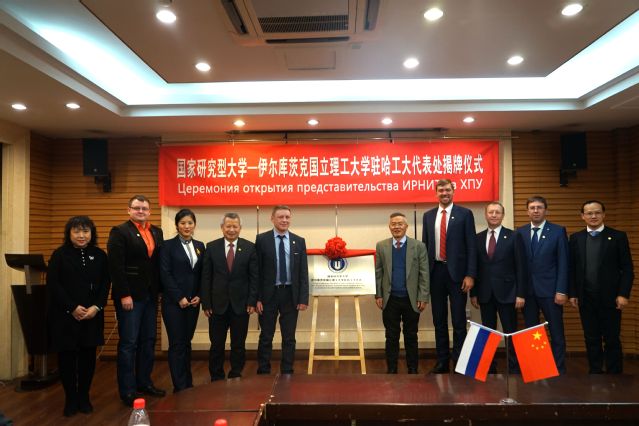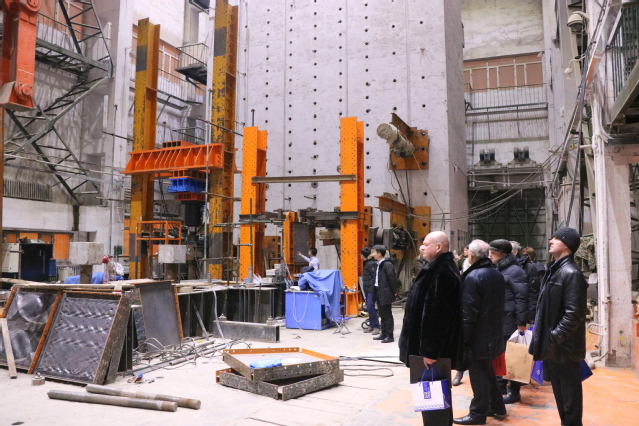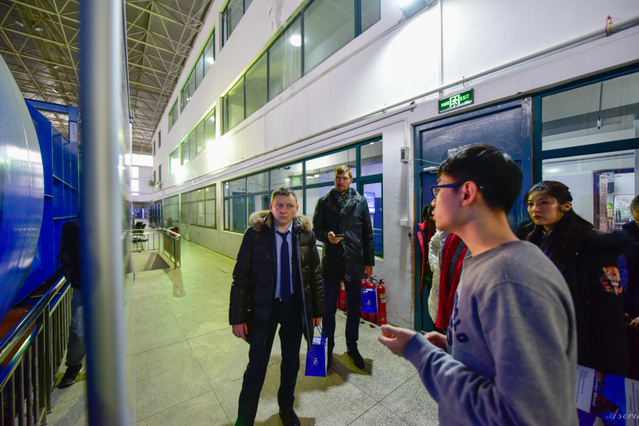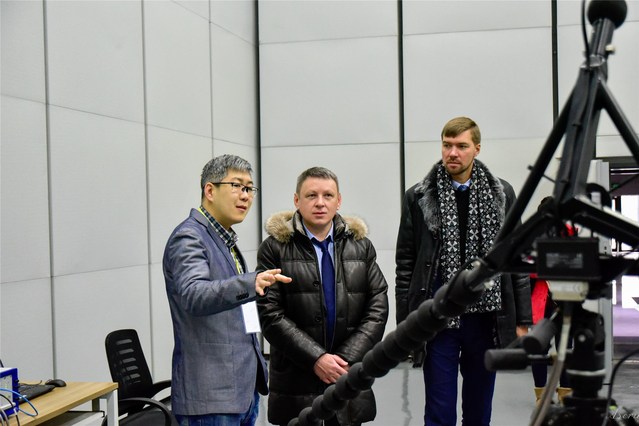Written by: School of Architecture
Translated by: LIU Danyang
Edited by: William Mosteller
Date: 2019-12-11
Harbin Institute of Technology News (Foreign Affairs Text/Photo) From November 29 to December 2, Harbin Institute of Technology and Irkutsk State University of Technology successfully held the Sino-Russian Academic Exchange Week at our school. Twenty-two experts from the Russian State Research University-Irkutsk State University of Technology (hereinafter referred to as the "Irkutsk University of Technology"), and teachers and doctoral students of relevant colleges in our school have carried out cooperation through academic round tables, technical exchanges, laboratory visits, enterprise research, and other forms.
On the afternoon of November 29, the opening ceremony of the representative office of the Irkutsk University of Technology in Harbin Institute of Technology was held in Administration Building Room 220. Vice President Liu Hong and Assistant President Fan Feng of our school, President Karnikov and Vice President Safkin of Irkutsk University of Technology, and representatives of experts from China and Russia attended the unveiling ceremony.
Liu Hong warmly welcomed the visiting delegation. He pointed out that both schools have their own distinctive characteristics and advantages, and the two sides have great potential for cooperation. He hopes the two schools will rely on advantageous subject resources, continuously innovate cooperation modes, and jointly promote talent exchange and scientific and technological cooperation between the two countries. Karnikov pointed out that the establishment of a representative office in Harbin Institute of Technology marks a new height in the partnership between the two sides, and the future cooperation and exchanges between the two sides will surely achieve more fruitful results.
From November 30 to December 1, the first Sino-Russian Symposium on the Sustainable Development of Civil Engineering in Cold Regions, the Sino-Russian Green Energy Roundtable and the Sino-Russian Symposium on Ecological Environment were held simultaneously in the Civil Engineering College, the Energy College, and the Environment College of our school.
At the first Sino-Russian Symposium on the Sustainable Development of Civil Engineering in Cold Regions, teachers and students from the Civil Engineering College, the Architecture College, and the Transportation College, as well as Russian experts made wonderful academic reports on the anti-explosion and impact properties of new materials and structures, composite structures, seismic properties of multi-storey building structures, urbanization mechanism, and frozen soil engineering in cold regions. In the afternoon, Russian experts visited the wind tunnel and wave trough joint laboratory, the structure earthquake resistance laboratory, and the cold region building science laboratory. The head of the laboratories systematically introduced the basic situation and development history of each laboratory to the Russian experts.
At the Sino-Russian Green Energy Roundtable, representatives of teachers and students from the Energy College, the Chemical College, the Mechanical and Electrical College, the Electrical College, and the Aerospace College, along with Russian experts, made academic reports on green engineering, fuel cell composite membranes, flexible distributed power grids, and mechanical manufacturing processes. China and Russia held discussions on their respective fields and points of agreement. In the afternoon, Chinese and Russian experts visited the relevant laboratories of the College of Power Electronics and Power Transmission of our school, the laboratories of aerospace agencies and key disciplines of national defense control, and the National Engineering Laboratory of Coal-fired Pollutant Emission Reduction, and went to Harbin Investment Co., Ltd. to conduct on-site investigation on desulfurization and denitration.
At the Sino-Russian Symposium on Ecological Environment, teams and members from different research directions of the College of Environment introduced their research progress to Russian experts concerning drinking water purification, coal chemical wastewater treatment, sludge and solid waste resource recycling, microbial technology and energy utilization, polar research, persistent organic pollutants and environmental health, etc. The Russian representatives introduced their scientific research and student training, and made academic reports on anti-corrosion materials for sewage pipes, new domestic sewage treatment technologies, fly ash resource utilization technologies, etc. After the seminar, the two sides also held round-table discussions on common topics, initially forming eight specific scientific research cooperation directions.
The success of this Academic Exchange Week has enhanced mutual understanding between the two sides, promoted the outlets of academic exchanges, and laid a solid foundation for further in-depth cooperation between the two schools.






